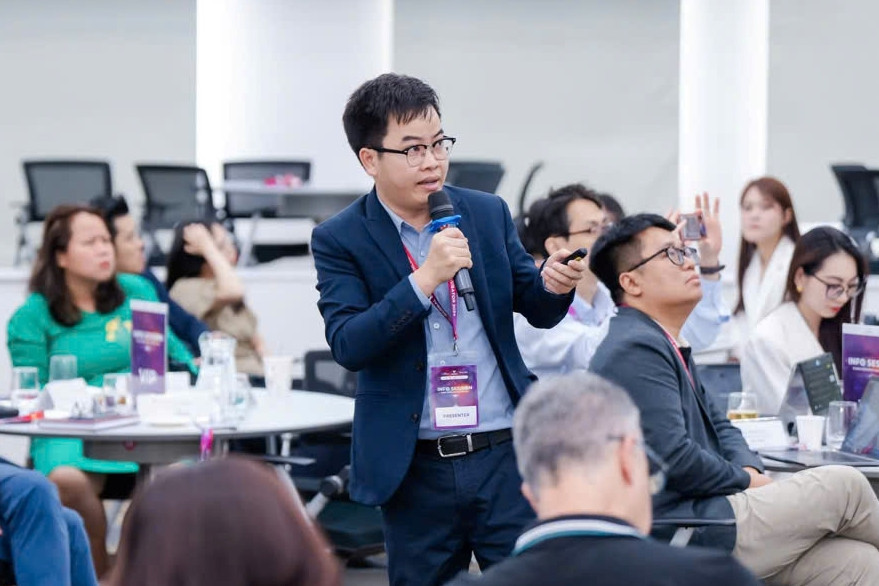
Pham Huy Hieu is a lecturer at the Institute of Engineering and Computer Science and a research expert at the VinUni-Illinois smart health center, VinUni university. He also serves as the scientific director of the entrepreneurship center (E-lab) at VinUni.
For Hieu, born in 1992 in NamDinh, material wealth was not his goal. Only 10 years after graduating from university, Hieu has amassed a “fortune” of 70 papers, including over 20 in Q1-ranked journals.
Hieu, who graduated from Hanoi University of Science and Technology (HUST) in 2015, won a full PhD scholarship from the French government to study computer science at the University of Toulouse.
Completing his PhD with distinction, he chose to return to Vietnam, ignoring many attractive job opportunities abroad at the time.
“In fact, the decision to return to Vietnam was set in my mind from the moment I set foot in France to study. Young people can contribute to the country from anywhere, but by returning, I could directly participate in developing technology and solving problems for Vietnamese people,” he explained.
The field Hieu wanted to pursue upon returning was the application of AI in smart healthcare. According to Hieu, if successfully developed, these applications would have a significant impact, as advanced healthcare technologies are often expensive and not accessible to everyone.
Moreover, they could address public health challenges in Vietnam, such as the disparity in doctors’ expertise across regions, the doctor-to-1,000-population ratio, or the issue of infrastructure failing to meet the growing demand for medical services.
Fortunately, when he returned, many universities, research centers, and technology corporations began investing in building professional research environments. He was entrusted with the role of research expert and leader of the fundamental research team at the VinBigData research institute.
In the early stages of research, Hieu faced numerous challenges, particularly the lack of foundational knowledge about medical data and the progression of diseases.
“Understanding data is the key to the success of low-cost models. Luckily, these are interdisciplinary studies requiring the participation and expertise of many scientists in various fields. Working with a vast network of doctors and medical experts, I learned a great deal from them,” he said.
Smart-health app
Most of Hieu’s research aims at creating smart healthcare technologies with low costs and accessibility to everyone. Among them, VAIPE—a smart health monitoring and support system for Vietnamese people—is one of the solutions in which he has invested significant effort.
This application helps collect, manage, and analyze personal data such as heart rate, blood pressure, and medication behavior, enabling users to take care of themselves. Additionally, it can provide predictions and health risk alerts, encouraging early medical check-ups and improving treatment outcomes.
“This research direction is also part of a global healthcare trend of shifting from treatment to early diagnosis and preventive medicine,” Hieu noted.
As a scientist with 70 papers, contributions by Hieu and his co-workers have helped collect and standardize large-scale medical databases and define new problems in the field of smart healthcare. This enables the scientific community to test and evaluate new AI algorithms.
He believes that science has no endpoint. “For me, the goal isn’t the number of papers or inventions, but the positive impact on people’s lives,” he said.
Hieu’s greatest aspiration is to continue building a strong research team with high expertise, capable of competing internationally in Vietnam. Additionally, he aims to conduct in-depth research and bring research results to practical applications, creating change and new values.
“AI is developing at a rapid pace, opening up immense potential for smart healthcare applications. That’s why I aim to blend healthcare and technology into an interdisciplinary science, helping doctors diagnose faster and more accurately, ultimately improving people’s health and quality of life,” Hieu said.
Thuy Nga